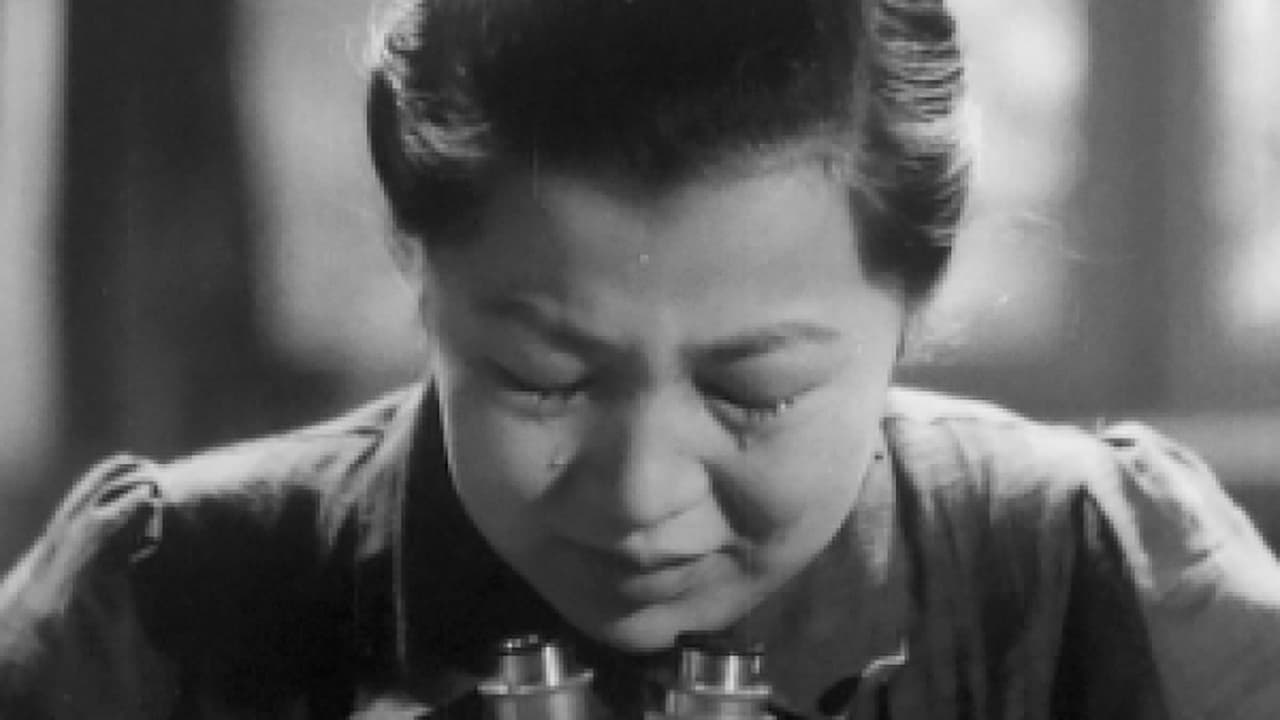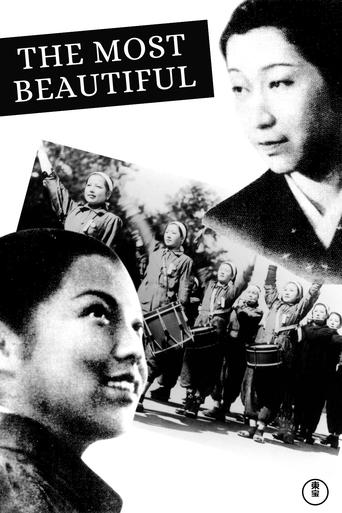

That doesn't mean that The Most Beautiful is a terrible film, because it isn't(in fact I haven't seen a terrible Akira Kurosawa film, and this is trying not to be biased). It just falls short compared to a lot of Kurosawa's- one of my favourite directors- best work, Seven Samurai, Ran and Ikiru being my favourites. For an early Kurosawa film it looks great and is strikingly shot, if a little ordinary-looking compared to what Kurosawa did later. The music is appropriately rousing and patriotic and the acting is very good indeed, particularly from Yoko Yagushi. The cast do work very well together which makes the women's plight more relatable, and there are agreed a number of touching scenes. Kurosawa's direction is mixed here, it is competent but with a sense that he was still finding his feet understandably. The technical skill is there if not the story compared to later. The story is very well-intended but could have been much more compelling, some of the pacing plods which can make the story dull. The film also does a far better job in the more sensitive parts than the intense ones, the latter of which getting rather heavy-handed mainly with having one main theme that repeats itself a lot that it feels too much. The script is not as tightly structured or as easy-to-fully-comprehend than most Kurosawas, far from bad but with not as much of an emotional core as one would want. And it's not helped by the subtitles, that are stilted and with a sense of them being written afterwards without always fitting very well. Lastly, it was sad to see one of Japan's finest actors Takashi Shimura being given so little to do. In conclusion, nowhere near among Kurosawa's best but still should be seen at least for interest value. 5/10 Bethany Cox
... View MoreA curious film from Kurosawa, given what came later, this is a nationalist film about a group of young women who are working at an optical instruments factory who are given the task to greatly increase productivity for the good of the country and the war effort. It shows them rarely at play, mostly very focused at work. Takako Irie plays the dorm mother, a somewhat sympathetic character. This film is more inherently Japanese than most of Kurosawa's later work, its almost a propaganda film. However, there is also some heart in the characters, and that is what makes it a recommended film. You sense the young ladies anguish over being sick and having family difficulties, making them unable to work. So, not essential viewing but still watchable and Kurosawa fans should check it out.
... View MoreIf you study this film then you can learn much about Japan, World War Two, and Akira Kurosawa. This is the only film he made that was meant to be propaganda, but his earlier film Sanshiro Sugata actually played to themes more useful to a nation at war. If you make a film that matches the zeitgeist of your country, that's great. But be forewarned that your country's government may then ask you to inspire the people to fight on, and you would then make a propaganda film, which is what may have happened to Kurosawa. This fact shouldn't make you reject The Most Beautiful because cinema in all countries in WW2 was used in the war effort. Japan was no exception.Kurosawa in interviews after the war revealed his dislike of the government censors. Toward the end of the war, Japanese were preparing for the possibility of the entire nation receiving an order from the Emporer to commit suicide, called "the Honorable Death of the 100 Million." Kurosawa didn't dispute that he would have followed the Emporer's directive, but did say that he and his colleagues jokingly agreed they would first go and kill all the censors.The plot and action of the film is described elsewhere. There are things to watch for carefully as you view the film.If you're in a university setting then there is one absolute advantage that you have -- access to a professor of management and organizational behavior. Why? Well, The Most Beautiful is practically a docu-drama on management science. The scientific methods of production and organizational management are more clearly documented in this film than in any other I can recall, anywhere. It also compares things like Stakhanovism to Hawthorne experiment studies and displays the early beginnings of total quality management and quality assurance methods later developed by Deming. If these terms are unfamiliar to you, then you need a professor of management science to watch the film and help you see what Kurosawa was putting in. Then consider that the film was released to the Japanese public, which assured that it would be viewed by American military intelligence organizations and the OSS.Some specifics to look for in no particular order: the background music includes a sampling from Semper Fi, the USMC theme song; there's little talk of enemies but when they're mentioned, the British are named ahead of Americans; the factory managers back a young woman's rejection of her father's instruction to come home and take the place of his deceased wife, which is a break with tradition (almost the equivalent of bra-burning in wartime Japan); and, backgrounds are set in wartime Japan and reveal details of the industrial infrastructure.There are many films by Kurosawa that feature sickness and health care in their plots. This one, Drunken Angel, Ikuru, The Quiet Duel, and Red Beard come to mind. Dodes' ka-den and Ran might also qualify as their main characters suffer from afflictions of the mind. Kurosawa's biggest films are Rashomon and The Seven Samurai, but his films with health and medicine in the plot are more prevalent in his career.One caveat to The Most Beautiful is that it is long and does reflect the tastes of Japanese audiences who like their drama very obvious. Forgive yourself if you find Japanese drama becomes too boring in some places. The films can be very enjoyable and interesting, provided you approach them with the understanding that they are far different from what we experience as entertainment today.
... View MoreIchiban utsukushiku (1944) 'THE MOST BEAUTIFUL' is Akira Kurosawa's tribute to Japanese Women who supported the war effort (WWII) at the 'Home-Front'. It is analogous to films made in other countries at that time. The nations that participated in the conflict all called upon Women too help in the manufacturing process. Some successfully like Great Britain, Soviet Russia and the U.S.A. Others like China, Fascist Italy or Nazi Germany less so, with Imperial Japan falling in between. Not from lack of effort, but of resources.Like LETTERS FROM IWO JIMA (2006) the film shows the war from the Japanese perspective. This is a propaganda film. That does not invalidate its message compared with the other participants in the conflict, it is just another point of view, made in wartime. The Women work in a optical factory which could pass for a 'Dickensian Workhouse'. Their work is important and they know it. The pressure of increased productivity with limited resources is clearly shown. It effects them all emotionally, physically and psychologically. The Men of the factory for the most part are unseen drones, except for the managers of the plant. They take a sensitive interest in the well being of their Female staff, without taking advantage of them. The War is largely unseen, but you know it is out there and getting closer all the time. The Director could see the end was coming, even if the Imperial General Staff could not.The principal cast of Women actors are largely unknowns whose careers were brief before and after this film. They are all convincing in their roles and give believable characterizations. The only 'Star' recognizable too Western audiences would be the great TAKASHI SHIMURA. SHIMURA was a 'jake of all trades' for the TOHO Studios, Japan. His acting range spanned Business Men, Criminals, Detectives, Samurai and Scientists. Films of note, SHICHININ NO SAMURAI (1954) 'The Seven Samurai', GOJIRA (1954) 'Godzilla', CHIKYU BOEIGUN (1957) 'The Mysterians' and YOJIMBO (1961) 'Yojimbo, The Bodyguard'.Those who have TCM or a well stocked local Library can take advantage of the films of AKIRA KUROSAWA and they should.
... View More